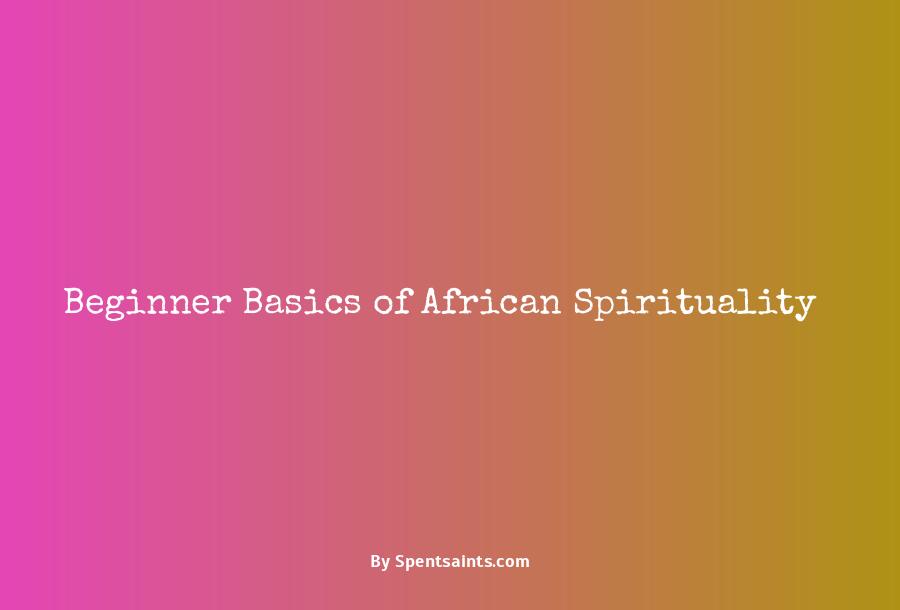Seeking a deeper connection to ancestral wisdom? Interested in exploring African spirituality but not sure where to begin?
African spirituality stems from a profound reverence for one’s ancestors and the natural world. It revolves around maintaining harmony within communities, nature, and the spirit realm. Whether you feel drawn to specific traditions like Vodun, Santeria, or Ifa or want a broad overview, read on for the beginner basics.
Defining African Spirituality
At its core, African spirituality acknowledges the sacred in all living beings and Earth’s elements. It is a diverse concept encompassing varied cosmologies, practices, and belief systems among African cultures. However, some commonalities exist:
- Belief in a supreme creator, lesser deities, and spirits.
- Ancestral veneration and communion with ancestral spirits
- Respect for natural spaces and phenomena as dwelling places for spirits
- Focus on living in balance and harmony within one’s community and environment
Followers seek to nurture interconnection with all facets of the universe. Rituals, offerings, veneration of deities, and divination help devotees develop personal relationships with the spiritual world.
Core Beliefs and Values
In African spirituality, ancestors and deities act as protectors, teachers, and guides for their earthly communities. As a result, respect and veneration for these spirits is deeply ingrained in belief systems and daily practices used to honor one’s reciprocal relationship with the spirit world. Some key beliefs include:
- Respect for elders, leadership, and ancestral wisdom
- Collectivism and community protection over individualism
- Importance of rituals for life’s transitions like birth, marriage, death, etc.
- Use of divination and spiritual intuition to resolve issues
- Responsibility to nurture social order and harmony
These principles permeate varied cosmologies across Africa, informing a shared spiritual worldview oriented toward venerating one’s ancestors and community.
Connection to Nature and Ancestors
As spirits permeate Earth’s elements, devotees must live in balance with nature. Sacred plants, stones, rivers, mountains, and other natural phenomena provide places for spirits to inhabit and commune with humans. Conversely, destroying or disrespecting nature equates to harming the spirits dwelling there.
Ancestors also have an integral, reciprocal role. Descendants honor their ancestral spirits through offerings, prayers, and invoking guidance. In return, these ancestor spirits provide protection, blessings, and wisdom to future generations. This interdependent relationship reinforces a collective community existing across time and the physical/spirit worlds.
Getting Started with African Spirituality
Beginners can start exploring African spirituality using varied approaches. See what resonates before diving deeper into a particular practice or tradition.
Learning Basic Principles and Key Concepts
Start by researching core beliefs like venerating one’s ancestors and living in harmony with nature. Understanding these paramount principles allows context for specific deities, rituals, superstitions, and other facets in African spirituality.
Study pantheons of African gods and goddesses to grasp how different groups perceive the supernatural world. Recurring divine archetypes like creator gods, trickster gods, nature gods, and mother goddesses reveal shared aspects of spirituality across the continent.
Exploring Different Traditions and Practices
Many diasporic spiritual traditions have roots in African cosmologies. Learning about their worldviews, rituals, and occult practices can illuminate foundational African spiritual philosophies.
Traditions like Haitian Vodou, Brazilian Candomble, Trinidadian Orisha, and Cuban Santeria combine African beliefs with colonial era faiths. Other groups like West African Vodun/Voodoo, Kemetic spirituality in North Africa, and Zulu traditions in southern Africa more closely resemble ancestral precolonial practices.
Connecting with Community and Spiritual Leaders
Getting first-hand perspectives from practitioners deepens conceptual knowledge. Seek out festivals, religious centers, temples, botanicas, or even online communities to connect with devotees willing to share insights.
Building mutually respectful relationships with spiritual leaders like Vodun priests, Santeria padrinos, or singspirits in African Indigenous Churches also facilitates experiential learning. Their guidance for beginners is invaluable.
Key Components and Rituals
Certain elements commonly ground African diasporic rituals and rites of passage. Learning about these components helps comprehend their significance within varied traditions and cosmologies.
Prayer, Meditation, Drumming and Dance
Followers strengthen communication between human and spirit realms using sound, movement, and focalized intention. Chanting, music, and dancing induce trance states unlocking spiritual perception when performed in sacred contexts.
Solitary prayer and meditation also forge connections with deities and spirits. Silence, contemplation, and invoking guidance through focused thoughts or spoken petitions allow devotees to directly interact with their venerated, ancestral guardians.
Rites of Passage
Marking life transitions with rituals harmonizes an individual’s journey between worlds of the living/dead and childhood/adulthood. Rites for pregnancies, births, funerals, marriages, healing, and coming-of-age milestones realign community and spiritual balance when change occurs.
Ceremonies use purification, offerings, prayer, and sacrifice to usher participants into their new stage of life while severing associations with the old. The Community witnesses and supports transitioning members as they embark into uncharted territory.
Herbs, Plants and Sacred Spaces
Devotions often use special herbs, plants and naturally occurring shrines to enhance communication with the spirit world. Crossroads, big trees, rivers, and mountains are known sacred spaces where ancestors and deities manifest more easily when called upon.
Particular vegetation also carries spiritual potency depending on associated legends and diachronic uses. Practitioners recognize certain trees, plants, stones, shells and feathers as vessels channeling ashe – the vibrant lifeforce permeating all creation according to Yoruba philosophies.
One-on-one divination like casting shells, throwing cowrie shells, interpreting tarot cards or communicating with mediums helps followers receive personalized direction from spirits and deities.
This mystical guidance realigns one’s path toward purpose. It also awakens innate extrasensory gifts for discernment retained from ancient times. With practice, anyone can fine-tune their spiritual intuition through dreams, syncronicities, visions, senses and pure instinct.

Dreams, spirit, growth – I explore them all. Laugh, learn, grow with me. Unlock your inner guru.
